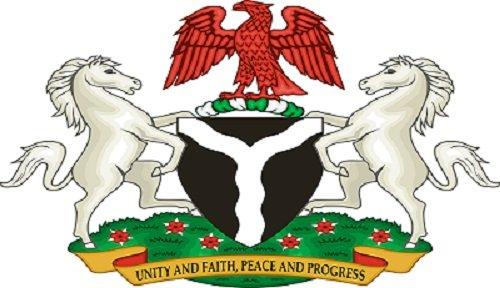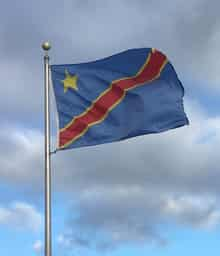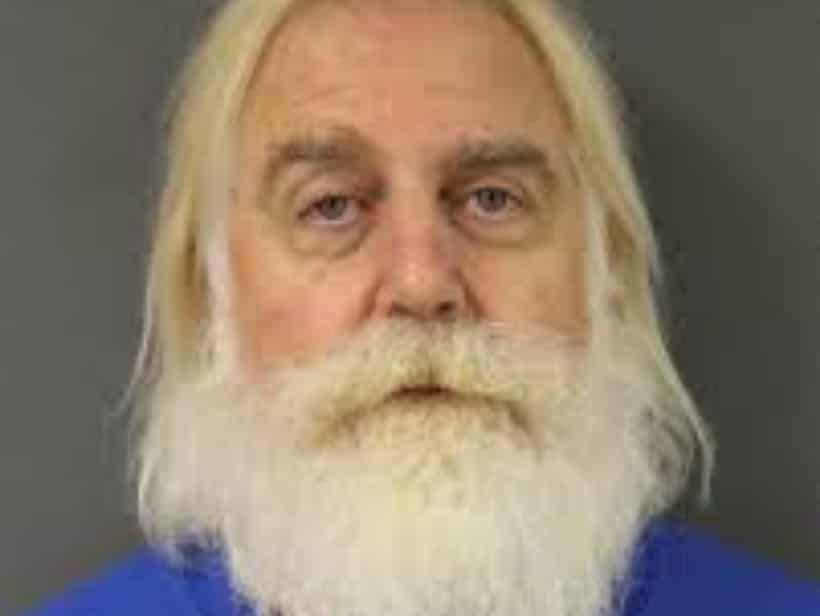Headline
EndSARS Report: Buhari Breaks Silence

President Muhammadu Buhari on Thursday told the United States Secretary of State, Mr. Antony Blinken, that the Federal Government will allow the system in the report of the investigative panel on the EndSARS to exhaust itself.
President Buhari told his guest that the government will wait for pronouncements from state governments that set up panels to probe police brutality in the country.
Speaking at the visit, President Buhari said, “So many state governments are involved, and have given different terms of reference to the probe panels,” the President added.
“We at the Federal have to wait for the steps taken by the states, and we have to allow the system to work. We can’t impose ideas on them. Federal Government has to wait for the reaction of the states.”
On the recent removal of Nigeria from watchlist of countries violating religious freedom, which Blinken said was “based on facts,” President Buhari expressed the country’s appreciation, noting that there was freedom of worship in Nigeria, and no one is discriminated against on the basis of his or her faith.
He said education is a priority in the country, “because when you educate a people, there are certain levels they will not fall below.”
READ ALSO: #Lekki Tollgate: 50,000 Sign Petition Against Buhari’s Govt Under 24hrs
The President equally appreciated the United States of America for allowing Nigeria to procure military hardware to fight terrorism in the country, and for the training given to Nigerian military.
“It’s helping us to stabilize the situation in the Northeast, and we’ve made a lot of progress since 2015,” he said. “We are doing a lot on security, and the people involved appreciate our efforts.”
On development of democratic ethos, President Buhari said Nigeria has adopted the American model, “hook, line, and sinker, with its term limits. Those who have attempted to breach it were disappointed, if not disgraced. You are even lucky if you have two terms. Others try hard, and don’t get it. The American model has been accepted by Nigerians as the best.”
Nigeria and her neighbors, the President noted, have been living with the impact of climate change for a while, which has seen the Lake Chad shrink drastically from its original size, and affected the livelihood of about 30 million people in the Lake Chad Basin countries.
“That is why the youths defy the Sahara Desert and the Mediterranean to attempt emigrating to Europe. Inter-basin water transfer is needed to keep the youths at home, and they can resume their lives of farming, fishing, and animal husbandry.”
In his response, the United States Secretay of State told the Nigerian President that the United States anticipate and look forward to the state and the Federal Government’s response to the findings, and expect those to include steps to be taken to address the victims.
Mr Blinken, who had held a virtual meeting with the Nigerian President earlier in the year said jocularly that it was now good to see him “mask to mask, hoping that we will soon see face to face.”
He appreciated the contributions of President Buhari to protection of the climate, particularly his presence and contributions at the recent COP26 climate conference held in Glasgow, Scotland.
Blinken said America and Nigeria have diverse challenges, but a common denominator is security, and hoped for better partnerships, “so that the bad guys won’t get the good guys.”
He described the report of the EndSARS probe panel as “democracy in action,” stressing that America equally had its own police brutality, and hoping that necessary reforms would be made.
In a joint press briefing with the Minister of Foreign Affairs, Blinken said in earlier meetings with the President, the Vice President and the foreign affairs minister.
He said, “We discussed the importance of a comprehensive approach that builds effective security forces addresses the underlying drivers of extremism, and respects Nigerians basic human rights.
“The United States is committed to helping Nigeria do that by continuing to invest in our security partnership, and the institutions that strengthen the rule of law, and that hold accountable those who commit human rights abuses, corruption and other acts that harm the Nigerian people.
“By tackling these issues, we can help to address some of the problems that have been key drivers of insecurity. To that end, let me say that we welcome the conclusion of the investigation by the independent inquiry established by the Lagos state government to look into the events that took place at the Lekki Tollgate in Lagos, in October of 2020 during a protest, including the killings and other alleged abuses by the security forces.
“We anticipate and look to the state and the federal government’s response to the findings, and expect those to include steps that ensure accountability and address the grievances of the victims and their families. We’re also working closely with Nigeria to help the populations most affected by conflict and violence in the country, particularly in the Northeast, where the United States is providing vital humanitarian aid to approximately 2.2 million internally displaced Nigerians United States continues to build the capacity”
On COVID-19, he said, “First of all, working together to beat back COVID-19. And to build back better as we address the devastating impact that it’s had on all of us on our communities on our economies.
“The United States has delivered 7.6 million doses of safe effective vaccines to Nigeria, and we expect to send another significant number of doses by the end of the year. Donated with no strings attached. And we’re providing significant aid to save lives right now.
READ ALSO: Only White Paper Can Confirm Alleged Killings – Chief Of Defence Staff
“From the more than 150 testing labs that we have to set up nationwide to helping tackle food food security crisis that was worsened by the pandemic. We have teamed up for a long time to confront epidemics to to improve public health. In that sense, this is not new.
“The United States and others work with Nigeria toward eliminating a wild polio virus supporting vaccination campaigns at surveillance to detect and isolate cases. That collaboration was key to the country being certified free of the virus in August of 2020.
“That’s a huge achievement. Reckon assistance is helping to bring treatment to more than one and a half million people in Nigeria living with HIV AIDS, and we’re on track for epidemic control by 2023. Our support for primary health care hubs provide vital services to more than 60 million Nigerians.
“These other efforts have helped create a robust infrastructure for Nigeria’s COVID-19 response and broader efforts to strengthen public health security, which are essential to detect and prevent the next pandemic.
“Second, we’re working with Nigeria to build back better from the pandemic by fostering inclusive sustainable economic growth. That’s the goal of the 2 billion.”
(VANGUARD)
Headline
South Korea, Japan Protest China, Russia Aircraft Incursions

South Korea and Japan reacted furiously on Wednesday after Chinese and Russian military aircraft conducted joint patrols around the two countries, with both Seoul and Tokyo scrambling jets.
South Korea said it had protested with representatives of China and Russia, while Japan said it had conveyed its “serious concerns” over national security.
According to Tokyo, two Russian Tu-95 nuclear-capable bombers on Tuesday flew from the Sea of Japan to rendezvous with two Chinese H-6 bombers in the East China Sea, then conducted a joint flight around the country.
The incident comes as Japan is locked in a dispute with China over comments Prime Minister Sanae Takaichi made about Taiwan.
READ ALSO:China Backs Nigeria, Warns Against Foreign Interference
The bombers’ joint flights were “clearly intended as a show of force against our nation, Defence Minister Shinjiro Koizumi wrote on X Wednesday.
Top government spokesman Minoru Kihara said that Tokyo had “conveyed to both China and Russia our serious concerns over our national security through diplomatic channels”.
Seoul said Tuesday the Russian and Chinese warplanes entered its air defence zone and that a complaint had been lodged with the defence attaches of both countries in the South Korean capital.
“Our military will continue to respond actively to the activities of neighbouring countries’ aircraft within the KADIZ in compliance with international law,” said Lee Kwang-suk, director general of the International Policy Bureau at Seoul’s defence ministry, referring to the Korea Air Defence Identification Zone.
READ ALSO:Trial For South Korean Woman Accused Of ‘Suitcase Murders’ Starts Today
South Korea also said it deployed “fighter jets to take tactical measures in preparation for any contingencies” in response to the Chinese and Russian incursion into the KADIZ.
The planes were spotted before they entered the air defence identification zone, defined as a broader area in which countries police aircraft for security reasons but which does not constitute their airspace.
Japan’s defence ministry also scrambled fighter jets to intercept the warplanes.
Beijing later Tuesday confirmed it had organised drills with Russia’s military according to “annual cooperation plans”.
READ ALSO:South Korean Actress Kim Sae-ron Found Dead In Seoul Apartment
Moscow also described it as a routine exercise, saying it lasted eight hours and that some foreign fighter jets followed the Russian and Chinese aircraft.
Since 2019, China and Russia have regularly flown military aircraft into South Korea’s air defence zone without prior notice, citing joint exercises.
In November last year, Seoul scrambled jets as five Chinese and six Russian military planes flew through its air defence zone.
Similar incidents occurred in June and December 2023, and in May and November 2022.
READ ALSO:Russia Insists Ukraine Must Cede Land Or Face Continued Military Push
Meanwhile, Tokyo said Monday it had scrambled jets in response to repeated takeoff and landing exercises involving fighter jets and military helicopters from China’s Liaoning aircraft carrier as it cruised in international waters near Japan.
It also summoned Beijing’s ambassador after military aircraft from the Liaoning locked radar onto Japanese jets, the latest incident in the row ignited by Takaichi’s comments backing Taiwan.
Takaichi suggested last month that Japan would intervene militarily in any Chinese attack on the self-ruled island, which Beijing claims as its own and has not ruled out seizing by force.
AFP
Headline
Thousands Reported To Have Fled DR Congo Fighting As M23 Closes On Key City

Fierce fighting rocked the eastern Democratic Republic of Congo on Tuesday as the Rwanda-backed M23 militia rapidly advanced towards the strategic city of Uvira, with tens of thousands of people fleeing over the nearby border into Burundi, sources said.
The armed group and its Rwandan allies were just a few kilometres (miles) north of Uvira, security and military sources told AFP.
The renewed violence undermined a peace agreement brokered by US President Donald Trump that Kinshasa and Kigali signed less than a week ago, on December 4.
Trump had boasted that the Rwanda-DRC conflict was one of eight he has ended since returning to power in America in January.
READ ALSO:Ambassadorial Nominees: Ndume Asks Tinubu To Withdraw List
With the new fighting, more than 30,000 people have fled the area around Uvira for Burundi in the space of a week, a UN source and a Burundian administrative source told AFP.
The Burundian source told AFP on condition of anonymity he had recorded more than 8,000 daily arrivals over the past two days, and 30,000 arrivals in one week. A source in the UN refugee agency confirmed the figure.
The Rwanda-backed M23 offensive comes nearly a year after the group seized control of Goma and Bukavu, the two largest cities in eastern DRC, a strategic region rich in natural resources and plagued by conflict for 30 years.
Local people described a state of growing panic as bombardments struck the hills above Uvira, a city of several hundred thousand residents.
“Three bombs have just exploded in the hills. It’s every man for himself,” said one resident reached by telephone.
READ ALSO:South Africa Beat DR Congo In shootout To Finish Third At AFCON
“We are all under the beds in Uvira — that’s the reality,” another resident said, while a representative of civil society who would not give their name described fighting on the city’s outskirts.
Fighting was also reported in Runingo, another small locality some 20 kilometres (12 miles) from Uvira, as the M23 and the Rwandan army closed in.
Burundi views the prospect of Uvira falling to Rwanda-backed forces as an existential threat, given that it sits across Lake Tanganyika from Burundi’s economic capital Bujumbura.
The city is the main sizeable locality in the area yet to fall to the M23 and its capture would essentially cut off the zone from DRC control.
READ ALSO:Stampede Kills 37 During Army Recruitment In Congo Capital
Burundi deployed about 10,000 soldiers to eastern DRC in October 2023 as part of a military cooperation agreement, and security sources say reinforcements have since taken that presence to around 18,000 men.
The M23 and Rwandan forces launched their Uvira offensive on December 1.
Rich in natural resources, eastern DRC has been choked by successive conflicts for around three decades.
Violence in the region intensified early this year when M23 fighters seized the key eastern city of Goma in January, followed by Bukavu, capital of South Kivu province, a few weeks later.
– Regional risk –
The peace deal meant to quell the fighting was signed last Thursday in Washington by Congolese President Felix Tshisekedi and his Rwandan counterpart Paul Kagame, with Trump — who called it a “miracle” deal — also putting his signature to it.
READ ALSO:FULL LIST: US To Review Green Cards From 19 ‘Countries Of Concern’ After Washington Shooting
The agreement includes an economic component intended to secure US supplies of critical minerals present in the region, as America seeks to challenge China’s dominance in the sector.
But even on the day of the signing, intense fighting took place in South Kivu, where Uvira is located, which included the bombing of houses and schools.
Witnesses and military sources in Uvira said that Congolese soldiers fleeing the fighting had arrived in the city overnight Monday and shops were looted at dawn.
Several hundred Congolese and Burundian soldiers had already fled to Burundi on Monday, according to military sources, since the M23 fighters embarked on their latest offensive from Kamanyola, some 70 kilometres north of Uvira.
Since the M23’s lightning offensive early this year, the front had largely stabilised over the past nine months.
Burundian President Evariste Ndayishimiye warned in February there was a danger of the conflict escalating into a broader regional war, a fear echoed by the United Nations.
Headline
‘Santa Claus’ Arrested For Possessing, Distributing Child Sexual Abuse Material

A 64-year-old man from Hamilton Township has been arrested in the United States after investigators linked him to the possession and distribution of child sexual abuse material.
The suspect, identified as Mark Paulino, had been working as a “Santa for hire” at holiday events, a role that placed him in repeated contact with children.
Mercer County officials said the investigation began on 4 December when detectives were alerted to suspicious online activity involving the uploading of child pornography from a residence in Hamilton Township. The probe quickly identified Paulino, a retired elementary school teacher, as the person involved.
READ ALSO:Nigerian Ringleader Of Nationwide Bank Fraud, Money Laundering Jailed In US, Says FBI
Police stated that Paulino had presented himself online as a retired teacher and had recently performed as Santa Claus for photographs and private, corporate, and organisational events. “Because this role involved direct, repeated contact with children, detectives worked around the clock to secure a search warrant,” authorities explained.
The warrant was executed on 5 December, during which police seized multiple items regarded as evidentiary. Paulino was taken into custody without incident and charged with possession and distribution of child sexual abuse materials, as well as endangering the welfare of a child.
Prosecutors have filed a motion to detain him pending trial. The investigation remains ongoing, and authorities have urged members of the public with relevant information to come forward.

 Headline4 days ago
Headline4 days agoJUST IN: Soldiers Announce Military Takeover Of Govt In Benin Republic

 News4 days ago
News4 days agoRufai Oseni Breaks Silence On Alleged Suspension From Arise TV

 News4 days ago
News4 days agoOAU Unveils Seven-foot Bronze Statue Of Chief Obafemi Awolowo

 Politics3 days ago
Politics3 days agoJUST IN: Tinubu Holds Closed-door Meeting With Rivers, Ebonyi Govs

 News3 days ago
News3 days agoWhy My Lineage Qualifies Me For Awujale Throne — K1 De-Ultimate

 Politics3 days ago
Politics3 days agoTinubu, Six APC Governors Hold Closed-door Meeting At Aso Villa

 Entertainment5 days ago
Entertainment5 days agoShola Allyson Finally Reveals Why She Refuses To Reference Jesus In Her Songs [VIDEO]

 News4 days ago
News4 days agoWoman Taken For Dead Wakes Up Inside Coffin Few Minutes To Her Cremation

 Politics4 days ago
Politics4 days agoAmbassadorial Nominees: Ndume Asks Tinubu To Withdraw List

 News4 days ago
News4 days agoHow I and Obey’s Son Escaped Getting Caught In Benin’s Coup —Dele Momodu




















